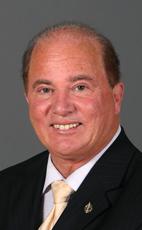Mr. Speaker, I would like to congratulate the hon. member for his remarks with which I generally agree. I think he is right in saying that there are two debates: the old one and the new one in the context in which we now find ourselves.
I must admit that, in the old debate, I was personally and completely opposed to cruise missile testing because, at the time, they were only adding to a nuclear arsenal already horrible and terrifying for the whole planet.
In those days, in that old debate, as soon as something new happened in the area of armament, there was always someone in the intelligentsia, in Quebec as well as in the rest of Canada, who rose in disgust claiming that we should stop pouring huge amounts of money into armament. That was part of the old debate and at that time, you would have found me on the barricades or marching to protest against cruise missile testing.
In this new debate, with the end of the cold war, there still remain areas of the world which pose a threat for democratic nations like ours. There are countries that rule through terrorism, choking off democracy. We saw an example of this during the gulf war and we saw that with the kind of interventions called for by the UN, we can avoid massive killing of civilian populations. This kind of equipment and its sophisticated guiding mechanism makes it possible to hit a target dead on, with a minimum of civilian casualties.
I now think, in this new debate, that to protect democracy as such, in our country and everywhere else, it is important to be equipped with the proper tools, no longer aimed at massive destruction, but at delicate surgery to excise those threats to democracy.
My question is this: After what I have said, do you agree that some countries should increase their activities against terrorism on the international level by using this type of surgical tool to strike down those anti-democratic offenders? Do you think that
such a tool could be more useful rather than less useful in the present debate?

